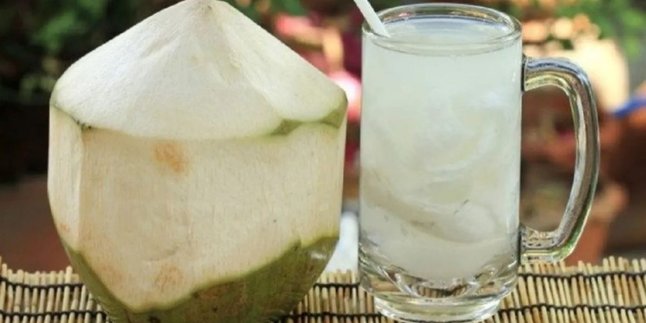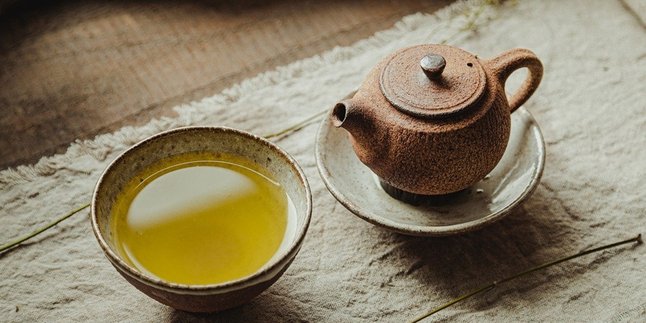Kapanlagi.com - Enduring thirst while fasting is indeed a challenge, especially when the weather is scorching and daily activities drain energy. An imbalance in fluid intake and improper eating patterns can lead to faster dehydration.
One common mistake often made is consuming caffeine during sahur. Caffeine, which is diuretic in nature, can actually increase urine production and cause the body to lose fluids more quickly. As a result, even after drinking enough during sahur, the feeling of thirst still haunts you.
So, how can you prevent thirst while fasting to keep your body fresh and energized throughout the day? Here are five effective steps you can implement to maintain fluid balance during fasting, as summarized by Kapanlagi.com on Monday (17/3). Stay tuned for more!
1. Limit Caffeine During Suhoor to Prevent Dehydration
One of the reasons we often feel thirsty while fasting is due to caffeine consumption during suhoor.
The substance found in coffee, tea, chocolate, and soft drinks has a diuretic effect, which causes the body to expel fluids more quickly through urine.
According to klikdokter.com, caffeine can increase urine production, leading to greater fluid loss in a short time and causing thirst to arise more quickly.
To maintain hydration, it is advisable to replace caffeinated beverages with plain water, which is indeed the best choice, or low-fat milk that can provide energy without the risk of dehydration.
Fruit juice without added sugar, such as watermelon or orange juice, can also be a refreshing and vitamin-rich alternative.
By avoiding caffeine and choosing healthier drinks during suhoor, we can maintain our body's fluid balance to remain optimal throughout the day.
2. Increase Consumption of Plain Water with the 2-4-2 Pattern
To keep the body fresh and hydrated while observing fasting, it is important to implement the right plain water drinking pattern.
One recommended method is the 2-4-2 pattern: start with 2 glasses of water during sahur to ensure the body is ready to face the day without fluid intake.
Then, from breaking the fast until after tarawih, enjoy 4 glasses of water to replenish the fluids lost throughout the day.
Finally, before sleeping, provide 2 glasses of water so that the body remains hydrated overnight.
However, remember not to drink a large amount of water at once, as it can make the stomach feel full and uncomfortable.
It is better to drink gradually so that the body can absorb the fluids optimally.
3. Consume Water-Rich Foods to Maintain Hydration
In addition to drinks, our bodies can also absorb fluids from foods that contain a lot of water.
Fresh fruits and vegetables with high water content can be the best friends for keeping our body hydrated.
For sahur and breaking the fast, try refreshing watermelon (92% water), crunchy cucumber (96% water), juicy oranges (86% water), and sweet melon (90% water).
Don't forget, vegetables like lettuce, tomatoes, spinach, and celery are also rich in water.
Incorporating these delicious options into the sahur and breaking fast menu not only makes meals more enjoyable but also helps our bodies stay hydrated and reduces thirst during fasting.
4. Avoid Salty and Spicy Foods that Trigger Thirst
What we eat during sahur significantly affects the thirst we feel during the day.
Salty and spicy foods should be avoided as they can quickly increase thirst. Why is that?
Foods high in salt draw fluid from the body's cells, making us feel dry quickly, while spicy foods can raise body temperature and accelerate dehydration.
As an alternative, choose low-salt foods like brown rice with side dishes that are not overly salty, and use natural spices to enhance flavor.
Don’t forget to consume healthy proteins like fish, skinless chicken, and boiled eggs to maintain energy without increasing thirst.
By doing this, our bodies will be better hydrated and the feeling of thirst while fasting can be significantly reduced.
5. Reduce Heavy Activities and Protect Yourself from Sun Exposure
During fasting, it is important to maintain body fluid balance to stay fresh and fit.
Heavy physical activities and direct exposure to sunlight can accelerate fluid loss, making us feel thirsty quickly.
Therefore, it is advisable to avoid heavy exercise during the day and choose light activities, such as a leisurely walk after breaking the fast.
If you must be active outside, wear light and bright-colored clothing to avoid absorbing heat, and don’t forget a hat or umbrella to protect yourself from the scorching sun.
With these simple steps, we can keep our bodies hydrated and reduce thirst during fasting.
(kpl/rao)
Disclaimer: This translation from Bahasa Indonesia to English has been generated by Artificial Intelligence.












